

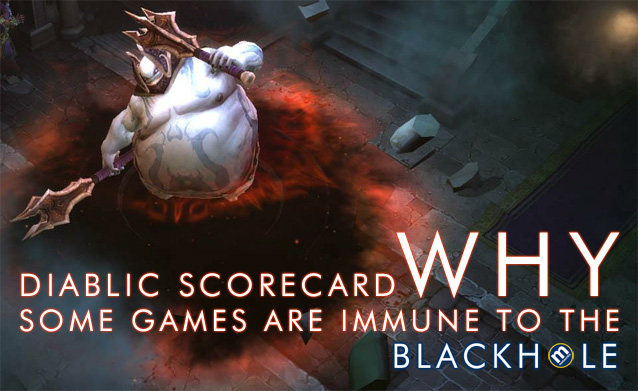
Without the shadow of a doubt, recently launched game-to-end-all-games Diablo III will be a huge financial success for developer and gods of gaming Blizzard. Huge amounts of pre-orders, enough people playing the game the second of release to crush even Blizzard’s servers, one of the most anticipated game launches in recent history - those things make the third installment in the venerated series a surefire success across the board. Not even the draconic always-on-even-for-single-player DRM kept unprecedented masses of players at bay. Which is problematic in itself, but not the point of this article.
But - and keep in mind, this is only hypothetically speaking - what if the game actually isn’t that good? What if, despite the gargantuan amount of hype and buzz from the gaming press, the game will be received poorly by the critics? We don’t know that yet, despite the game being out, since Blizzard didn’t allow reviewers early access. Surely that will not happen, unless something went massively wrong, but what if? Let’s imagine instead of being a game that I guess will receive a Metacritic ranking somewhere in the high 90s it turns out being a “mediocre” experience that rather settles in the 70s instead? Again, the notion that a game in the 70s being mediocre is problematic, but not the point here.
It’s commonly accepted that high Metacritic rankings, which essentially mean “the critics loved it”, translate into high sales. But this is Diablo we’re talking about. This is Blizzard we’re talking about. This game is so massive, with such a huge fanbase, that no matter the score, millions of people will be playing it regardless. At least for the economically all-crucial first few weeks. Diablo in this case seems to be less of a game, and more of a phenomenon. It’s a huge media event, everyone and his brother will be taking part in. The objective quality of this event, of this phenomenon doesn’t matter all too much it seems.
Blizzard is in a very comfortable position there. Not that I would accuse Blizzard of being lazy or being bad developers. I don’t particularly care for their games, but that’s on me and not their fault that they’re not making games for me. They have no obligation to do that, and I’m just one of the very few who are just left cold by pretty much anything they do. They are in a club of very few other developers who have a huge fanbase that will buy their games regardless of their critical acclaim or quality. It’s a position they share with Valve and Bungie and whoever is in charge of releasing the yearly Call of Duty iteration. Maybe there are others, but they fail to come to mind right now.
These companies produce games that cause masses of people to take a vacation for them. These companies have a track record so big, that the few voices that have discordant views about the quality of their products, that those voices won’t matter to the fans, at least not unless those companies do something that really upsets a large, vocal part of their fanbase - and even if that happens, it’s economically unimportant eventually, since those vocal fans will already have put down their hard earned cash, and probably won’t hold a grudge against “their” developers for long anyway.
In these cases, it just wouldn’t matter if the majority of critics agreed on one of those games just not being all that great.In these cases, it just wouldn’t matter if the majority of critics agreed on one of those games just not being all that great. It would be put off by the fans as a case of the game critics being out of touch with reality, with being out of touch with what the “real gamers” on the street want. Which in some cases might actually be true. But essentially, a bad Metacritic score will not hurt a game any of those companies release. It’s their track record, it’s the fanbase. Basically, those guys can now pretty much do what they want. Valve did that with bundling Half-Life² with Steam, which in its infancy was seen as an overly restrictive DRM measure. Blizzard now sets another precedence with their mandatory online policy even for single player games. It shows just how big these guys have become. It’s highly doubtful that any game they release will receive a bad score from anyone. “Quality” is not even the right word here, since all those games have it in droves. It’s more about personal taste.
I highly doubt that any respectable game reviewer or critic, any respectable review site would publish a negative review - meaning anything that’s not in synch with the fans’ expectations of a 9-10/10 score - of any of those games these days to begin with. And that’s problematic too, because there we have a certain kind of internalized censorship at work, being the outcome of various processes. First of all, if someone did that, the publication would be seen as the odd one out, giving a highly praised and beloved game a “bad” score only to stand out. Or - which might be worse - it might fall back on the reviewer or critic. It would then be said that the person in question was biased. Or not suitable to review such a game.
Would I review Diablo III if I had the chance? Probably not. It’s not a game for me, but then again, would my position as someone who’s really not convinced of the formula beforehand be more honest than the position of a fan who already wasted half his youth on the two predecessors? It’s an interesting question for me, since it highlights the strains and conflicts in the field of game criticism between gamers, critics, developers and publishers. My credo is that as a critic I don’t owe any of the other parties anything but my honest opinion. But still I have to admit that I would be highly hesitant to review a game I knew beforehand leaves me cold personally, while the rest of the gaming world goes apeshit about it.
Also, this further highlights a central problem with Metacritic. Imagine a Blizzard game receiving a bad score. Would it hurt their sales? Probably not. So this would be proof then, that Metacritic scores don’t actually translate into sales. Just ask the developers of any critical darling game about it. Critical darlings, games that receive top scores, don’t necessarily sell that well. Phenomena like Diablo or Call of Duty however do, regardless of their score. Which I think contains an important lesson to the publishers out there in regards to this whole matter.


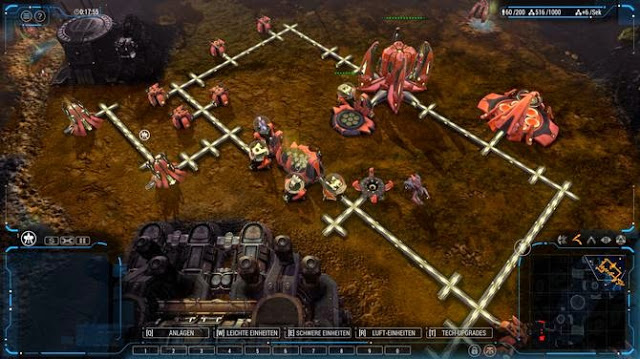

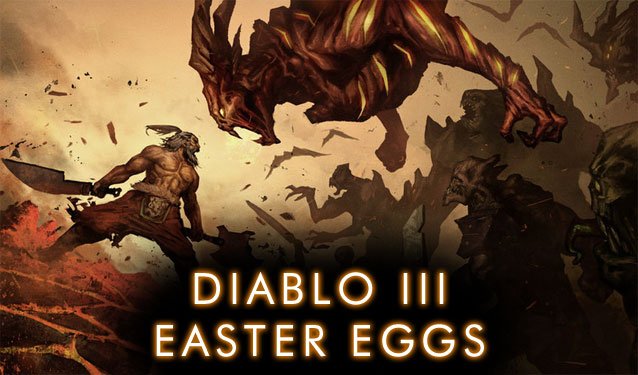 Diablo 3 Easter Eggs Locations
Diablo 3 Easter Eggs Locations FIFA 16 Guide: How to perform Basic and Intermediate Skills Moves
FIFA 16 Guide: How to perform Basic and Intermediate Skills Moves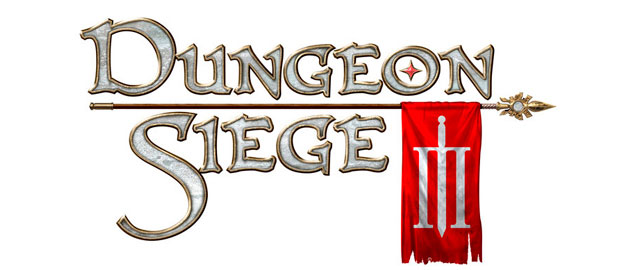 Dungeon Siege 3 Review Round-Up
Dungeon Siege 3 Review Round-Up Scares On The Cheap! Modern Horror Games Under $20
Scares On The Cheap! Modern Horror Games Under $20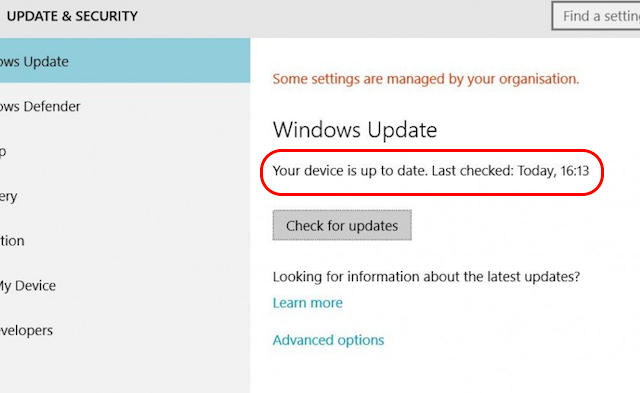 How to Upgrade to Windows 10 Version 1511 Now
How to Upgrade to Windows 10 Version 1511 Now